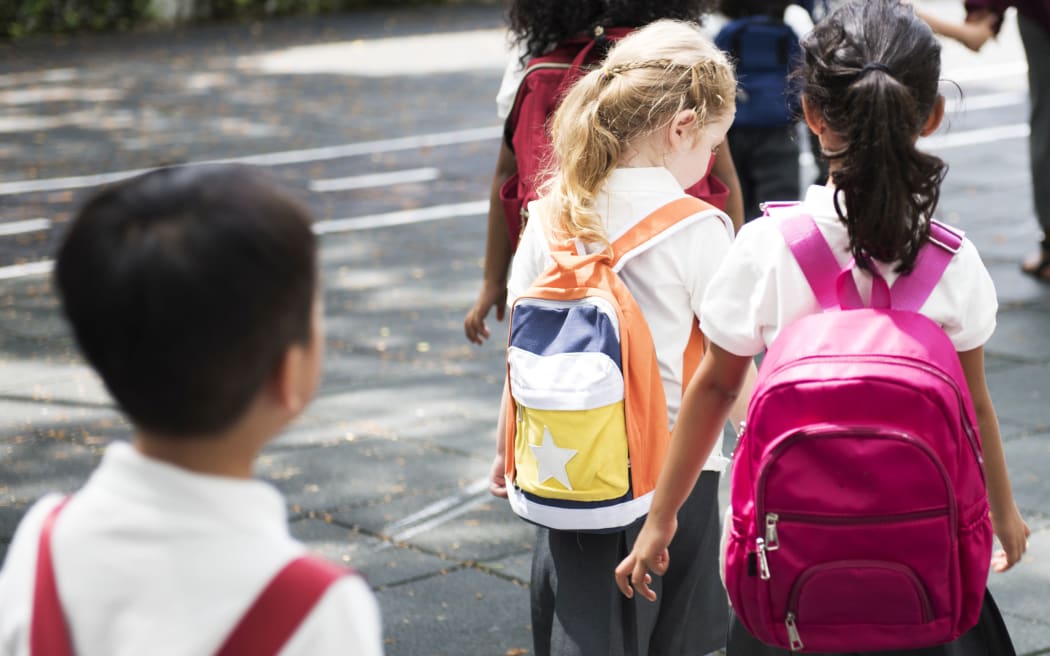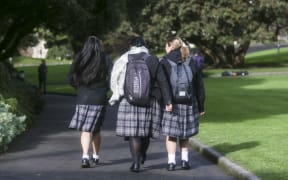
The figures show illness was the leading cause of absence. (file image) Photo: 123RF
Only 46 percent of school pupils attended classes regularly in term three, one of the worst figures on record, with Māori and Pacific students worst affected, Education Ministry figures show.
They also show a record number of students took holidays during the 10 weeks from mid-July to mid-September.
Regular attendance, defined as attending more than 90 percent of school time, had been on the rise after reaching an all-time low of 40 percent in term two last year.
But this year's term-three figure was as bad as the same period last year and well below the term three high of 63 percent reached in 2021.
Māori and Pacific students had the lowest regular attendance rates at 34 percent. For Pākehā students, the rate was 48 percent and for Asian students 58 percent.
The Education Ministry figures also showed differences between regions and age groups.
"The Canterbury and Chatham Islands region had the highest percentage of students attending regularly in Term 3 2023 (49.4 percent). The Tai Tokerau region had the lowest percentage of students attending regularly (34.2 percent)," the report said.
"Overall, the regular attendance rate for primary students (year levels 1-8) was 48.9 percent while the rate for secondary students (year levels 9-13) was 40.3 percent in Term 3 2023, a difference of 8.6 percentage points."
The figures also showed 12 percent of pupils attended for 70 percent or less of school time, the benchmark for chronic absence, slightly less than the same period last year.
However, for Māori, the chronic absence figure was 20 percent and for Pacific students 21 percent, while just 10 percent of Pākehā were chronically absent and 8 percent of Asian students.
The figures also showed illness was the leading cause of absence in term three this year.
Nearly 15 percent of school time was lost to absences in term three, including slightly more than 8 percent due to justified absences, such as illness, and just over 6 percent due to unjustified absences.
Māori students missed 10 percent of school time due to justified absences and a further 10 percent due to unjustified absences, and for Pacific students, the figures were 9 and 10 percent, respectively.
The report said 86,431 pupils missed at least half a day of school because their families took them on holiday during term time, and the average length of those holidays was nearly 11 half days. Both figures were the highest on record.
Education Minister Erica Stanford said the result was incredibly disappointing and had happened despite the previous government spending tens of millions of dollars trying to improve attendance.
Without rounding, the figure was 45.9 percent which was the second-worst attendance figures since 2011, she said.
"We need a change of direction to restore the habit of attending school regularly," she said.
"Associate Education Minister David Seymour and I have set a clear expectation with officials that it is time for a change in approach. We know it will take time to increase attendance rates but this government expects kids to be in school. We know a good education ensures our young people have the skills and knowledge to set them up for success.
"We will continue to ensure the right supports are in place to help families get their children to school but parents' attitudes count. This government will be sending a message that there is a moral and legal obligation for their children to be in school.
Seymour said the ACT Party's coalition agreement with National committed to addressing truancy by prioritising reporting and enforcement action to reduce truancy.
"As a nation, we can't accept a level of mediocrity where less than half of students are regularly attending school. To succeed in education, you have to show up," he said.
"Almost every aspect of someone's adult life will be defined by the education they receive as a child. For better social outcomes, kids need to be in the classroom and learning the basics."






